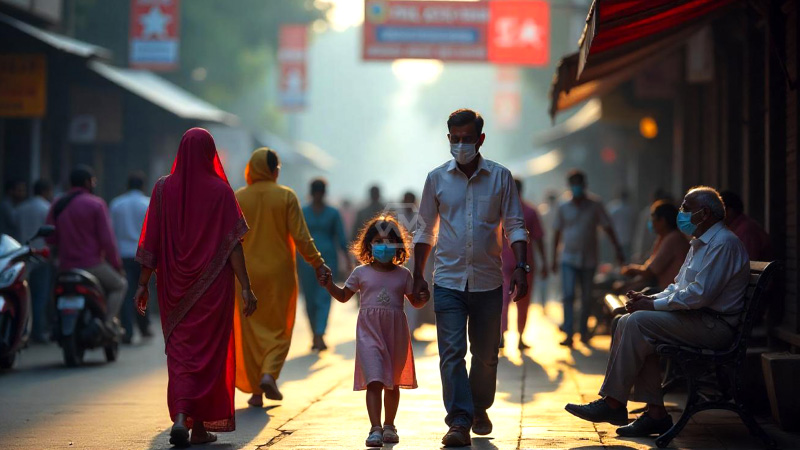- India reports seven HMPV cases, including first two in Karnataka and Maharashtra.
- HMPV causes mild respiratory symptoms but poses risks to vulnerable groups.
- Authorities emphasize precautions and ongoing monitoring by ICMR and AIIMS.
India has confirmed its first seven cases of Human Metapneumovirus (HMPV), a respiratory illness known for causing cold-like symptoms.
The cases, reported in Maharashtra, Karnataka, Tamil Nadu, and Gujarat, have sparked concern due to the virus’s impact on children, older adults, and those with weakened immune systems. Health authorities are monitoring the situation and ensuring samples undergo further analysis at AIIMS.
HMPV Cases Spark Concerns: What You Need to Know
HMPV, discovered in 2001, is globally prevalent and typically mild, with symptoms like fever, cough, and nasal congestion. However, it can lead to severe complications like pneumonia in high-risk individuals. While no unusual rise in respiratory illness has been noted, the Indian Council of Medical Research urges vigilance and adherence to preventive measures.
Despite these cases, experts have reassured the public that HMPV is not new and has been circulating globally. Most infections are mild, and individuals recover with rest and hydration. However, the virus’s potential severity in infants and immunocompromised individuals has prompted heightened surveillance.
HMPV spreads through respiratory droplets and surface contact, making personal hygiene and environmental cleanliness critical preventive measures. Handwashing, covering coughs and sneezes, and avoiding close contact with sick individuals remain essential practices.
Currently, there is no specific antiviral treatment or vaccine for HMPV. Authorities stress symptomatic management and timely medical intervention for severe cases. Public health bodies like ICMR are working to enhance awareness and ensure timely reporting of new infections.
HMPV’s emergence in India highlights the importance of vigilance, hygiene, and informed healthcare responses. Collaborative efforts will mitigate risks and ensure public safety.
“Prevention is better than cure.” — Desiderius Erasmus



